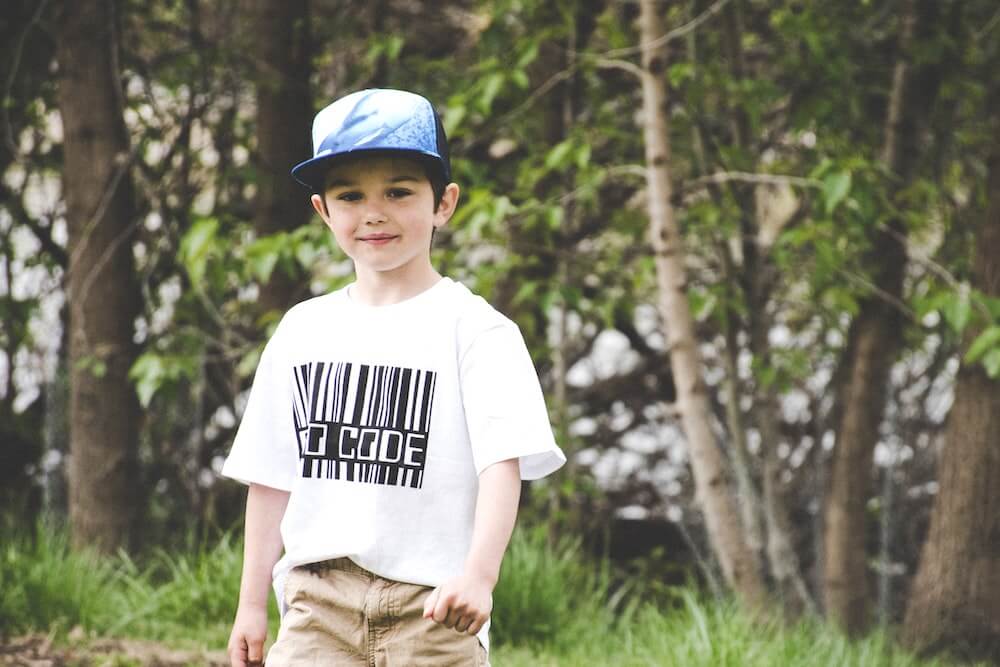Sick Of Repeating Yourself? What A Forgetful Child Really Needs
Why is it so hard for kids to remember what they’re supposed to do? Help your forgetful child with these 4 proven tricks.

It’s no secret that kids have selective listening.
For the life of them, they never seem to remember what we ask them to do. But as soon as we lower our voices, close a door or answer the phone, they’re instantly at our heels, eagerly picking up on everything we say.
Sound familiar?
It’s no wonder we constantly find ourselves nagging, raising our voices or wanting to tear our hair out when our kids forget what we tell them to do. Our kids are ignoring us on purpose!
Or are they?
It’s easy to associate forgetfulness with bad behavior. But what about kids who are usually responsible and self-sufficient? As it turns out, they’re just as forgetful as any other child.
There’s a reason for that.
You see, when our kids forget what they’re supposed to do (no matter how many times they’ve been reminded), there’s something going on in their brain that’s perfectly normal.
And it has nothing to do with disobedience.
Before we dive into the 4 ways to combat their forgetfulness, let’s take a closer look at what’s really going on.

INSIDE THE MIND OF A FORGETFUL CHILD
Parents have been dealing with absent-minded behavior for a long time. And kids aren’t the only ones who display it – we all do. As it turns out, forgetfulness is so common, it can even be measured.

Back in 1885, psychologist Hermann Ebbinghaus created a mathematical formula called “The Forgetting Curve”. It’s a curve that represents the rate at which information is forgotten over time if no attempt is made to retain it. And it’s pretty steep.
So steep in fact, that it’s estimated we lose almost half of any new information within a few hours of receiving it.
So if you’ve ever felt that your words go in one ear and out the other, chances are – they have! But the good news is that the information loss referred to in the “Forgetting Curve” only happens unless no extra effort is made.
That means, we can do something about it.
WHY IS IT SO EASY FOR KIDS TO FORGET WHAT TO DO?
Now that you’ve had a quick science/history lesson, let’s apply that information to parenting.
Why are kids able to remember some things more than others? Why do they forget to do things even though we’ve reminded them 1,000 times? Are they being defiant? What’s going on here?
Let’s turn back to Mr. Ebbinghaus. In his studies, he was able to determine a few reasons people can remember some things more than others. Here are 3 things to consider when you have a child who is being forgetful:
1. Their prior knowledge. Information is more likely to stick when it’s built upon past experiences and prior knowledge. If something is new (routines, rules, skills, etc.), just remember that it will take longer for them to retain the details.
2. The degree of importance. Our brains receive a lot of input each day and don’t like to store irrelevant information. Of course “relevance” can be arbitrary, which is why kids often need to understand the WHY behind any instruction.
3. How much time has gone by. Think back to the “Learning Curve”. Our kids will rapidly lose the information we give them unless we make frequent, repeated attempts to teach them.
Of course, there are other things that could contribute to forgetfulness, but these 3 are the most common.
So what can we do to help our kids actually remember to do the things we tell them to do? Is it even possible?
Luckily, it is. If you’re sick of repeating yourself, tired of always having to raise your voice, and done feeling like you’re always ignored, then these 4 strategies will help.

4 PROVEN WAYS TO HELP YOUR FORGETFUL CHILD REMEMBER WHAT TO DO
I first learned about the “Forgetting Curve” when I was trying to figure out what to do with my oldest daughter. She’s a studious, obedient, and good girl. But she is so spacey!
Routines don’t come easily for her and she’s so easily distracted that she only ever listens to half of what I say. But she’s not disrespectful or disobedient. I tried everything I could think of until I came across this information.
I was finally able to realize that she wasn’t actively trying to ignore me. Instead, my forgetful child just needed a little help!
These strategies have helped me know what to do with her, and have proven useful for my other children as well. I hope they can help you too.
Here are 4 ways to help your children remember what you tell them:
1. MAKE YOUR INSTRUCTIONS CONVENIENT
Children will always learn better with bite-sized information. Yet we often end up with routines that are too complicated, instructions that are too long, and conversations where we talk way too much.
Instead, simplify. Make the information easier to absorb.
Keep routines short (5 steps or less). Create visual reminders of what’s expected – including picture lists or even cute sticky notes for older kids. And make sure your child is able to do what you ask them to all by themselves.
For example, can they easily access toy bins or hanger rods? The easier we make it for our kids to clean up or implement a routine, the easier it will be for them to follow through.
Lastly, talk less. A lot less. Only give the most necessary information when issuing instructions or reminders. Even if you only say a word or two.
I have a son that always forgets to clear his area after meals. He used to pitch a fit every time I asked him to come back and put his plate in the sink. I finally shortened my reminder to one word: “plate”.
And surprisingly, it worked! He’s getting better at forming the habit, and no longer gets mad when I give that quick reminder.
2. KEEP IT RELEVANT
If we want our kids to become intrinsically motivated and do things without our nagging, we need to make our instructions relevant. “Because I said so” just won’t cut it, especially if we have a child who forgets things easily.
When we help our kids know why we’re asking them to do something, there’s a greater chance they will follow through. They also need to know how they will benefit.
I’m not talking about bribery here (although I have to admit, I do believe in the occasional bribe). I’m simply talking about helping our kids understand the reasons we ask them to do things.
Let’s use “clean your room” as an example. If we’re trying to help a child understand “why” they should keep their room clean, we might try to help them understand things like:
- A bedroom is a place to relax, and a messy room doesn’t feel calm.
- Everyone in the family contributes and we all have to clean up.
- It’s important to take care of our things and our spaces.
- It’s more fun to have friends play with us in our room when it’s clean.
Or even:
- “No screen time until your room is clean.”
Whatever works. Just try to help your child see the connection between what you’re asking them to do and why they should do it. If there’s a strong enough reason, they’ll remember to do it.
3. MAKE LEARNING INTERACTIVE
Kids learn better when they’re actively involved. When they’re passive observers, there’s a greater chance they’ll forget information. So involve them in the learning process as much as possible, and make it fun when you can. Here are a few ideas:
- Let them set a timer and try to beat it.
- Work alongside them.
- Turn on music.
- Turn a routine into a game.
- Make up a little poem to help remember steps.
Additionally, one of the best ways to learn is to teach. Give them opportunities to show their understanding by having them walk you through what’s expected. They can also repeat back instructions, take you through the steps of a routine, or “teach” you how to do something, like make their bed.
4. REPEAT, REPEAT, REPEAT
No one likes to repeat themselves over and over, but in parenting, repetition is part of the game. Fortunately, repetition can be a positive thing.
Like Zig Ziggler once said, “Repetition is the mother of learning”.
So often, we only see our role as an enforcer. We get caught up in making sure kids do what they’re supposed to do, act how they’re supposed to act and be how they’re supposed to be.
What if we approached parenting a little differently? Rather than being a full-time enforcer, what if we instead considered ourselves coaches?
You see, coaches fully understand the role of repetition. And they patiently guide their players to mastery through consistent drills and instruction, repeated daily.
We can do the same with our children.
We can lovingly guide them along as they learn the skills of life. We can be more understanding, knowing that it might take 10 times (or 100 or 1000) before they stop forgetting things all the time. And that eventually, it’s going to sink in.

WHEN YOU’VE TRIED EVERYTHING AND YOUR CHILD STILL FORGETS
As I write this, I’m thinking about how just this morning, my son – who is usually pretty good at remembering things – forgot his schoolwork at home. He was excited to show me something this morning, and forgot to put it back in his backpack.
When it really comes down to it, kids are forgetful. They just are. They’re easily distracted and always ready to jump to the fun part.
Which is why despite all the training (and patience) we give, we’ll always have that child who is forgetful from time to time. That knowledge helps me remember that their forgetfulness isn’t always a sign of bad behavior. And I know it will help you too.
The 4 strategies in this post are proven and tested. They’re used and taught by psychologists and brain experts, and they truly do make a difference in helping kids remember things more.
Again, the 4 strategies are:
- Make your instructions convenient.
- Keep it relevant.
- Make learning interactive.
- Repeat, repeat, repeat.
Over time, your child will get the hang of it, and you both will benefit.
Do you have any cool tricks for dealing with a forgetful child? Let me know in the comments!
OTHER HELPFUL POSTS:
- 20 Brilliant Uses For A Timer That Will Help Kids Focus
- From Helpless To Hopeful: How To Raise Resilient Kids
- How To Get Kids To Clean Up Without A Fight
- How To Turn A No Into A Yes (And Still Set Clear Boundaries)
want to remember this?
PIN IT TO YOUR FAVORITE BOARD
Share this article:




